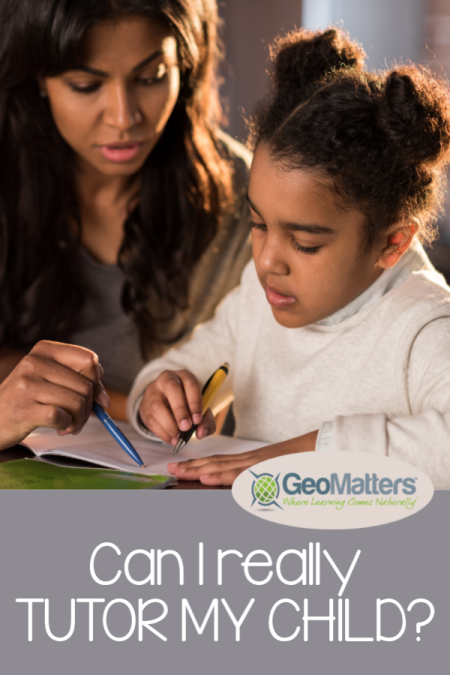News, Articles & Tips
Can I Really Tutor My Child?
Can I really tutor my child?
Most are hesitant to give a formal definition to homeschooling. After all, homeschooling looks different in different homes.
Some families school completely at home, some use co-ops as part of their homeschooling, and others make use of cottage school a few days per week. All of these are homeschooling.
So, when you have a friend interested in homeschooling, you might be tempted to frame the answer based on what homeschooling looks like in different settings.
I'm going to propose that the answer would be different if we instead asked the real question they want the answer to. That question is, "Can I really tutor {homeschool} my child?"
This gets to the heart of the matter. They want to know if they're truly equipped to do the job. And of course, that's what those in authority are really asking (and railing against), too.
{PS. The short answer? Yes, they're equipped.}
What is tutoring?
"Tutoring is simply teaching what a child needs when he needs it." Ruth Beechick
Tutoring is a framework for teaching that is based in relationship. It's a beautiful way to not only teach what you want your child to know, but to learn what your child would like to know.
It looks more like a continual effort at building relationship with your child through educational means such as - reading, writing, learning about history- than it does following a step-by-step process for educating a child that promises X as a result.
Does that really work for every child, anyway? Could that be part of why homeschooling has grown?
Ms. Beechick would suggest that we use a curriculum rather than follow one. Homeschooling (tutoring) should free both the parent and the child to pursue rabbit trails, delight directed learning, and work deeply on a subject.
In a nutshell, we (the parents) are in charge teaching and learning with the consent of our child rather than the curriculum having that authority over us.
Getting started with tutoring
Want to get started with tutoring your child? Here's the secret: you already know how.
"You parents naturally know how to relate to each of your children and help them learn. Your biggest problem is that so many of you are afraid that teachers or society or somebody out there will frown on your way of teaching. You feel safer if you stick closely to a book or series of books, because that is somebody else’s plan, that is in print, that must be right.” - Dr. Ruth Beechick
Spend some time today with pen and blank paper. You could start with lists for each of your children that highlight the things you'd like them to learn along with things you know light them up. Ask them what they'd like to learn. From that simple list, try:
- Looking through your current books on hand to see what resources you could pull in to flesh out topics and principles
- Start with the Bible and see what it has to say on those subjects
- Write out an educational plan (your heart on paper for your kids) for each child
- Try finding the keywords from your lists and make a new list of related words or topics you could study
- Put all of your homeschool curriculum on the kitchen table and look through the table of contents or scope and sequence to see what you could use for learning those topics
Measuring Success
So, a question you might have is how you should measure homeschooling success with tutoring. Excellent question!
Tutoring isn't done to the exclusion of academic rigor, it simply frames it around the individual child and their individuality, age, and interests. We can still ask them to learn hard things - when they are ready.
Success might instead be measured as a whole. Sure, testing can be part of the whole, but so is a well-developed love of learning. We might say that success happens when a child's own love of learning continues where our direct instruction stops.
Do it scared
I know, it might feel like uncharted waters. And you don't have to leap off the deep end.
"For precept must be upon precept, precept upon precept; line upon line, line upon line; here a little, and there a little." Isaiah 28:10
Pick one subject to begin tutoring your child in. Literature is an excellent choice and reading aloud or listening to audiobooks together provides a perfect setting.
Listen: it doesn't have to be perfect. You just have to start.
Recommended resources
12 Days with Dr. Ruth Beechick
Ruth Beechick Resources from Geography Matters
Pin Me:


